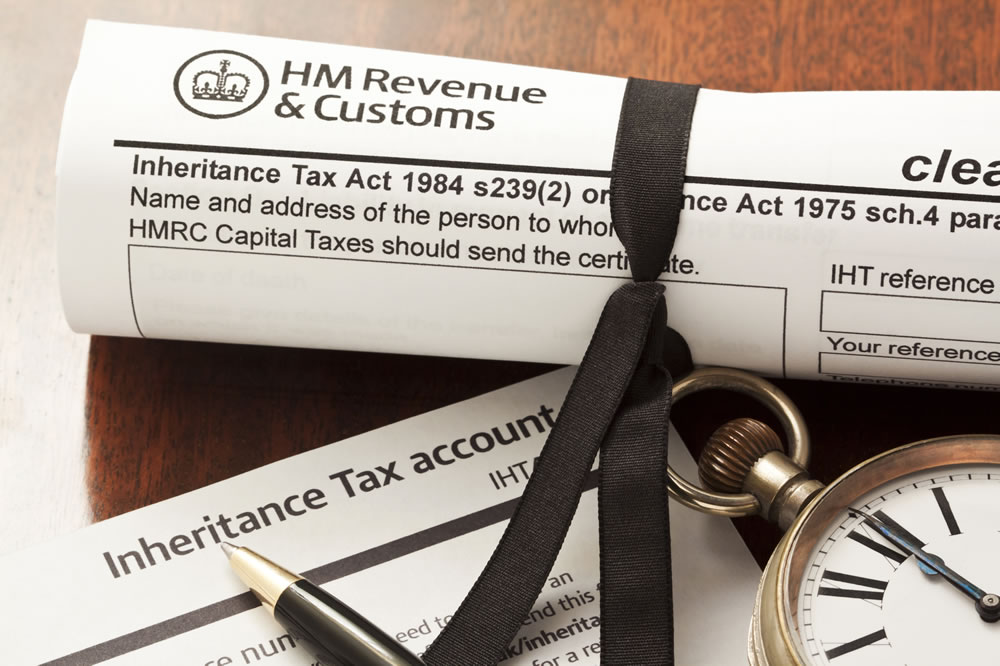
Inheritance tax is a complex and often confusing topic, with potentially big implications for your estate. How do you even begin to get started when trying to understand such a vast topic?
In this short guide, our Oxford-based financial advisers here at WMM will be providing some answers to common questions on this subject. The aim is to inform and inspire your thinking, so please do not take this content as financial advice.
To receive tailored, regulated financial advice into your own financial affairs and goals, please consult an independent financial adviser.
Question #1: What is the 2019 inheritance tax threshold?
As a general rule, in the 2019-20 tax year, you are allowed to pass on up to £325,000 to your beneficiaries, tax-free when you die. This threshold applies to assets within your estate such as property, possessions and money. Some assets are excluded, however, such as pensions and EIS shares held for at least 2 years.
If your estate is valued above this threshold, then the assets exceeding it will likely face an inheritance tax of 40%. There are certain situations where you can increase your threshold, however, which are important to discuss with your financial adviser. For instance, if you leave your residential property to direct descendants (e.g. children) then it is possible to take advantage of an “additional nil rate band”, which raises your threshold by £150,000.
Question #2 How much money can you inherit before you pay tax on it?
The answer to this question partly depends on your relationship to the person who has died. If you are the spouse/civil partner, for instance, then you should not have to pay any IHT (inheritance tax) on their estate if your husband, wife or civil partner dies and leaves their estate to you. The answer also partly depends on the value of the estate. As mentioned above, if the deceased person’s estate is valued under £325,000 then you will likely not face any IHT.
There are also certain rules governing IHT and particular assets you might inherit. For instance, if your parent/grandparent dies before the age of 75 and leaves their pension with you, then you will likely not need to pay any tax on it. If their death occurs over the age of 75, however, then any pension money you inherit could affect your Income Tax bill. Again, we recommend you consult a financial adviser to help clearly understand the rules given your own situation.
Question #3: How much money can I give as a gift without facing inheritance tax?
The rules surrounding gifts and inheritance tax can be quite complicated, and there have been many calls for them to be simplified. At the moment, in many cases, you are able to give away up to £3,000 per year without this amount being added to your estate (for IHT purposes).
You can also sometimes carry forward any unused allowance from the previous year to the present one, meaning that you could gift up to £6,000 in one tax year without this amount facing IHT. In addition to your £3,000 annual gift allowance, you can give up to £250 to any person who has not received some of this £3,000.
You can also give up to £5,000 to your child towards their wedding day, IHT-free.
Question 4: What is the 7-year rule on inheritance tax?
There is a rule which stipulates that you can gift an asset to someone (not your spouse), and provided you survive the date of the gift by at least 7 years, this gift will not face IHT. This still holds true for many estates, and there is even discussion to reduce the “7-year rule” to 5 years.
It’s important to be aware of what happens if you die within 7 years of making a gift, however. In this situation, your gift might be liable to IHT – but potentially at a reduced rate. This is known as “taper relief”, and the amount of relief you receive depends on the total time between the date of the gift and the date of death. For instance, if 3 or 4 years have elapsed then a taper rate reduction of 20% is likely. If 6 years have passed, however, then the reduction will likely be 80%.
Question 5: How do I avoid inheritance tax?
Sometimes it is possible to greatly reduce the amount of IHT facing your estate or even eliminate it altogether, through careful financial planning. Every estate is different in its value and composition, so there is no universal route to achieve this. However, there are some powerful strategies available for consideration with your financial adviser.
One option, for instance, is to think about crafting a will to ensure that your estate is divided, distributed and dealt with according to your wishes. Other options to consider include making gifts (see above), putting assets into a trust and using your pension (which does not face IHT).
Final Thoughts
These are just a handful of the many questions typically posed to our financial planners here at WMM, but we hope this has helped you gather more of your thoughts on this important area of financial planning. If you are interested in arranging a free, no-commitment financial consultation with a member of our team, then we invite you to get in touch. Our team is very friendly and it never hurts to start a conversation!


